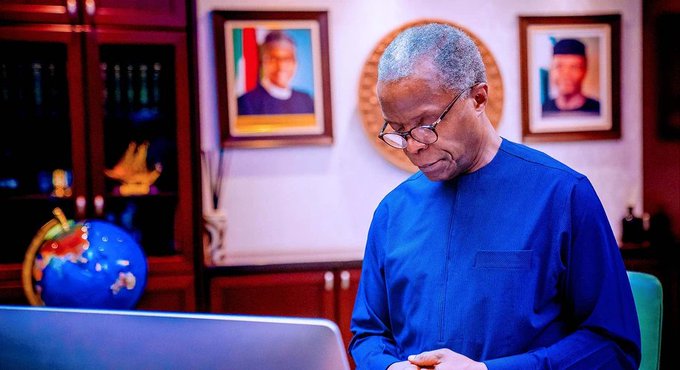News
Nigeria needs $410 billion to meet its energy transition goals -Yemi Osinbajo

Nigeria’s Vice President, Yemi Osinbajo has said the country needs about $410 billion to meet its energy transition goals by 2060.
Osinbajo disclosed this at the virtual inauguration of Nigeria’s Energy Transition Plan on Wednesday.
“Nigeria would need to spend 410 billion dollars above business-as-usual spending to deliver our transition plan by 2060, which translates to about 10 billion dollars per year.
“The average $3 billion per year investments in renewable energy recorded for the whole of Africa between 2000 and 2020 will certainly not suffice,” he said.
Noting that the Africa’s energy challenges were as grave as her climate issues, the vice president called for collaboration in resolving them.
“It is certainly time for decisive action, and we just cannot afford to delay; African nations are rising to the challenge; all African countries have signed the Paris Agreement and some countries, South Africa, Sudan, Angola, and Nigeria have also announced net-zero targets.
“The current lack of power hurts livelihoods and destroys the dreams of hundreds of millions of young people,” he added.
Stating that Africa’s unmet energy needs were enormous, Osinbajo said it would worsen if not quickly addressed.
He, therefore, called for external support in achieving the goals.
“And although Africa’s current unmet energy needs are huge, future demand will be even greater due to expanding populations, urbanisation, and movement into the middle class.
“It is clear that the continent must address its energy constraints and would require external support and policy flexibility to deliver this.”
The vice president noted that the transition plan if carefully executed could create 340,000 and 840,000 jobs by 2030 and 2060.
He noted that transition plan was also an avenue to provide less carbon and rapid development in Nigeria.
The Energy Transition Plan was launched to achieve the country’s objectives of achieving universal access to energy by 2030 and a carbon-neutral energy system by 2060.






